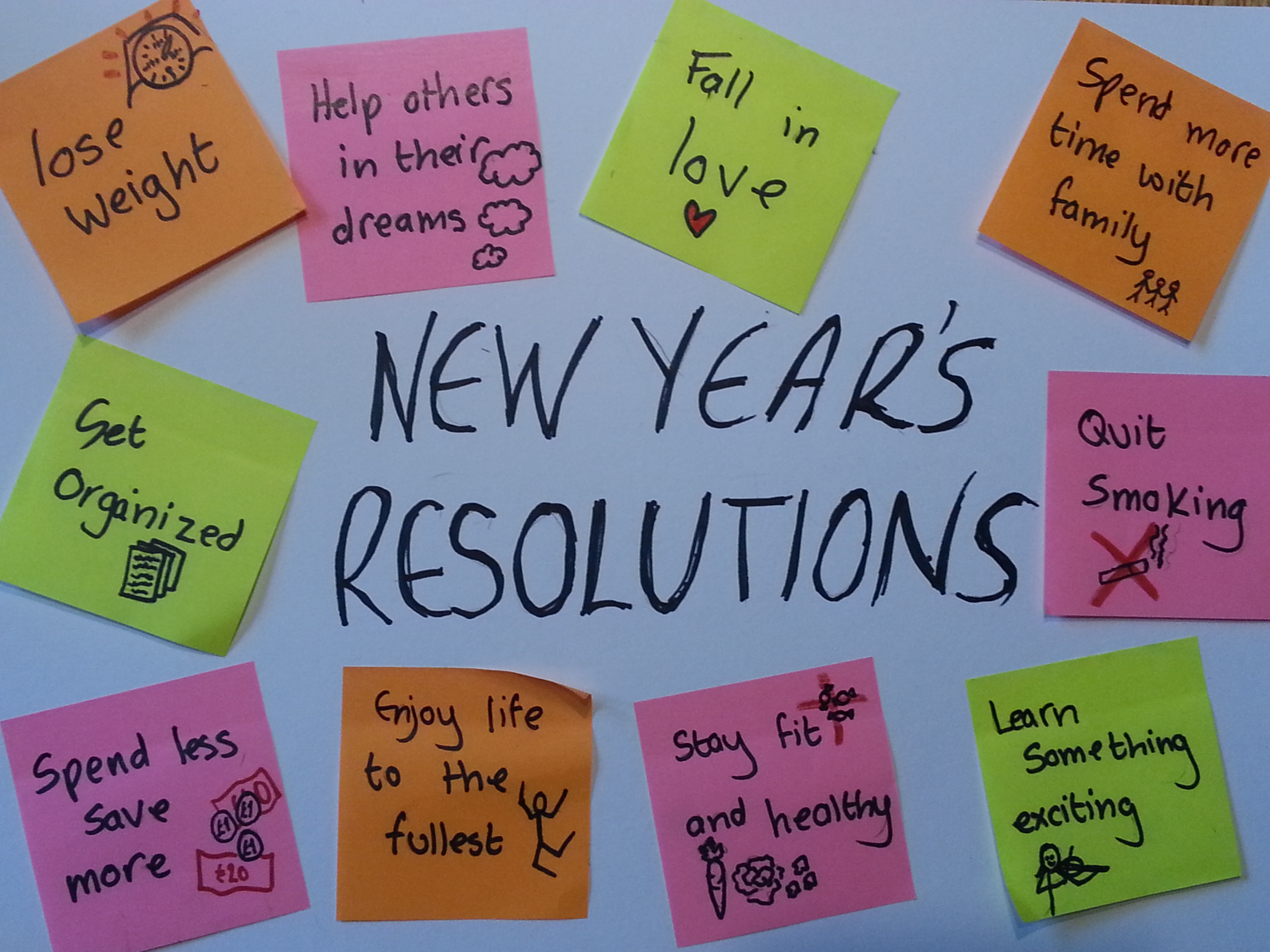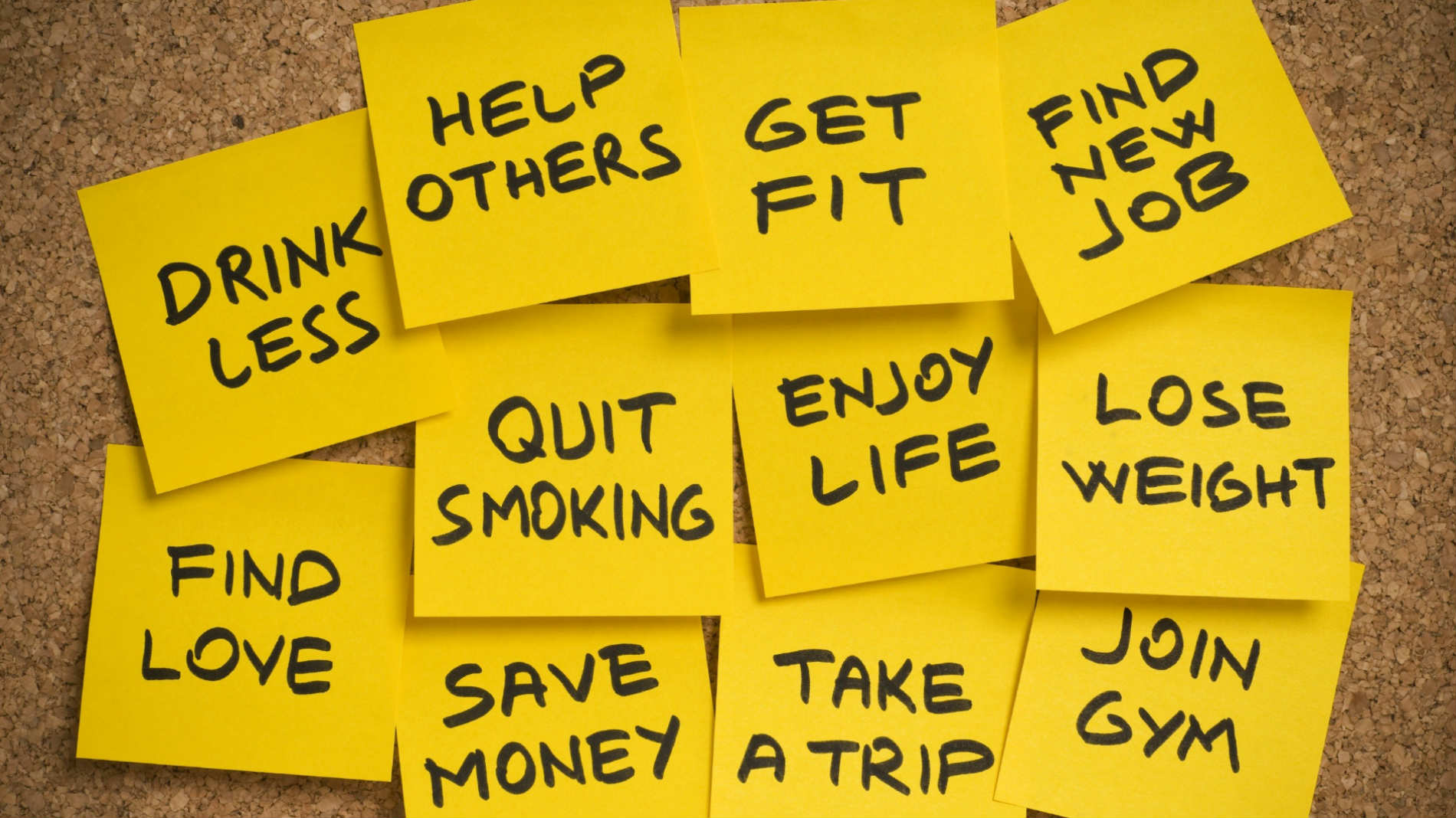Gallery
Photos from events, contest for the best costume, videos from master classes.












Some people don’t participate in New Year’s resolutions, but many feel the pressure to start off the new year in a healthy way. On average, resolutions don’t last long: the second Friday in January, often referred to as “ Quitter’s Day ,” is a common point at which droves of people throw in the towel and revert back to their old ways. Studies have shown that up to 70% of people who make New Year’s resolutions abandon those good intentions within months. Here are some tips for how to keep those resolutions when your willpower starts to falter. Start small. Psychologist Lynn Bufka suggests being realistic about any resolutions. Knowing how to keep a New Year's resolution is the first step to staying on track and meeting your goals. Try these tips based on psychology research. According to a January 2024 report from the Pew Research Center, 30% of American adults made at least one new year’s resolution for 2024. Half of that group made more than one goal for the year ahead. Young adults ages 18-29 were the most likely to make new year’s resolutions, according to the findings. The end of the year predictably brings the holiday rush, fun New Year’s Eve parties, and a fresh start right around the corner. It also means planning New Year’s resolutions for the new year and beyond — and the inevitable giving them up before spring. People have been making — and breaking — New Year's goals for around 4,000 years. The categories in our list of New Year’s resolution ideas span the most popular categories, including health (79%), finances (61%), relationships (57%), personal interests (55%), and career (49%). How long most people keep New Year’s resolutions. Without the right framework in place, most new habits don’t survive. To make this the year you stick to your resolutions, follow these psychologist-recommended steps: Focus on starting a new habit, rather than quitting an old one. Choose realistic goals that are sustainable for the long term. Make sure your goals are specific and measurable, not vague. New Year's resolutions are goals people set to make their lives better in the upcoming year, but many find them difficult to keep. This article covers 14 simple strategies to help you make your new goals stick with expert tips from life coaches and a clinical psychologist. There are tons of strategies for sticking to your New Year's resolutions, and these expert-backed steps will make your resolutions more doable. To make resolutions work for you, it can be better to take a realistic, self-aware approach, balancing ambition with practicality. This means understanding your current lifestyle, recognizing your limitations, and setting goals that are challenging, yet achievable. Here’s how to identify the right resolution to improve your life, create a plan on how to reach it, and become part of the small group of people that successfully make a resolution. The tradition of the New Year's resolution can be alluring. What better moment in time to resolve to accomplish important goals ? New year, new you, right?But research and polling show that a lot As a psychologist, here's how I'm going to make — and keep — my New Year's resolution. Essay by Simon Williams. 2024-12-31T09:03:01Z An curved arrow pointing right. Share For many common New Year’s resolutions—like exercising more, changing eating habits, and saving money—implementing this method can really help. Here’s an example of a SMART goal: “I will It can be daunting when your list of New Year’s Resolutions is as long as your holiday shopping list. In addition to the post-holiday slump, not being able to keep your resolutions by February, March, or even late January may increase your anxiety. Making New Year’s resolutions can be fun but also daunting, especially if yours have a history of veering off track. It can be challenging to keep new resolutions going. But whether you’re working toward a brand-new goal or trying to break old habits , you can shape your resolutions in ways that improve your overall well-being—even if Related article Healthy New Year's resolutions aren't just for adults With children under age 10, parents can take the lead in a discussion about where family members have room to grow, she said. As the new year dawns, so too does the opportunity for change. Experts say January can be a good time to reflect on self-improvement, but acknowledge it takes work to make resolutions stick 80% of people fail to keep up their New Year's resolutions by February. There is a way to keep them When you create a New Year’s Resolution this year consider joining a group.
Articles and news, personal stories, interviews with experts.
Photos from events, contest for the best costume, videos from master classes.











